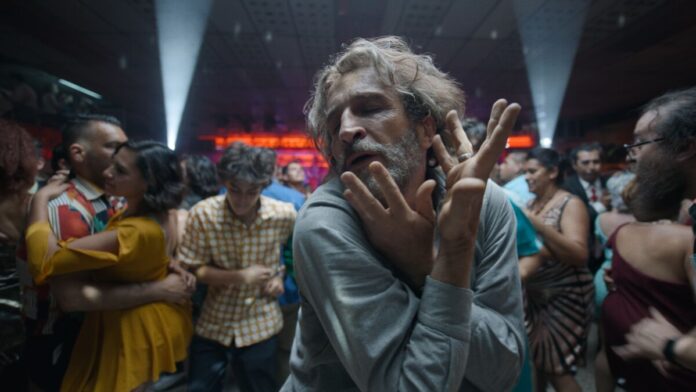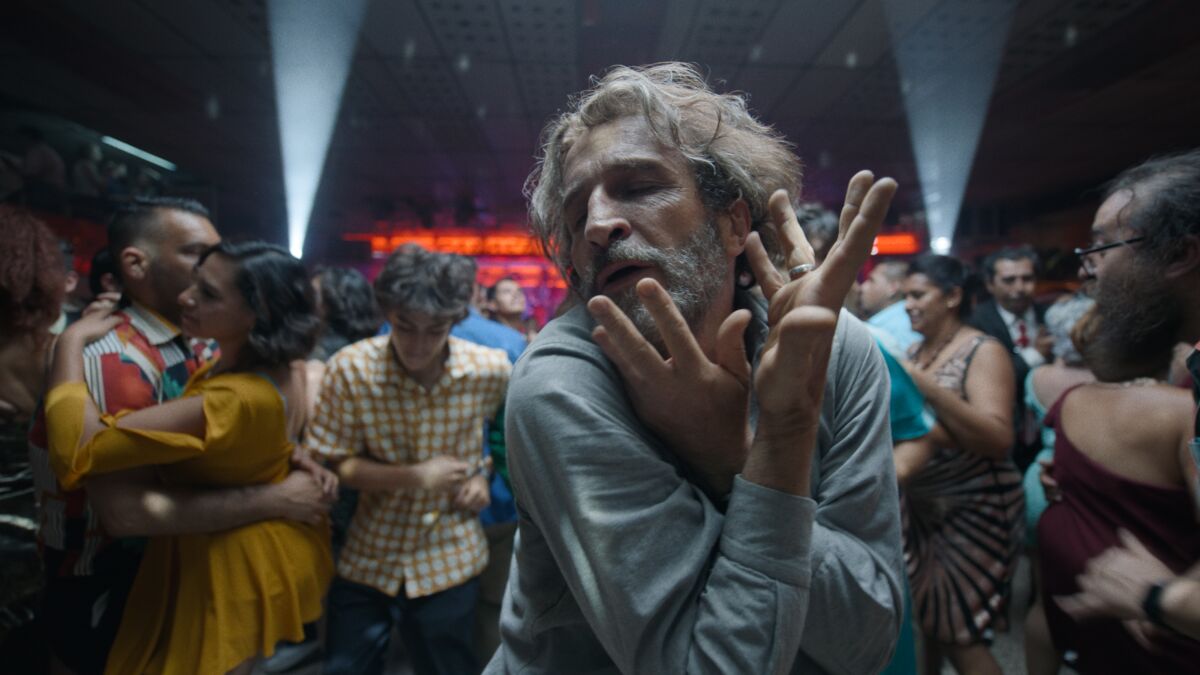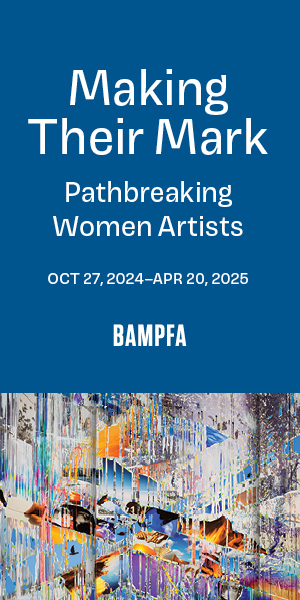I had expected to start this column with an extended gander at The Menu, which from a teasing distance looked promising, even potentially surprising: A class-warring dissection of the super-rich a la the recentTriangle of Sadness, turning (it looked like) into yet another iteration of The Most Dangerous Game, a story concept I never get tired of. But. A half-baked breadstick posing as haute cuisine, this movie is neither filling, nor as slyly sophisticated as it pretends to be. It strikes an attitude of high style and wit, hoping our anticipation holds out long enough that we don’t notice neither are much in evidence.
Unfortunately, it doesn’t. Anya Taylor-Joy plays a last-minute invitee to a very exclusive, pricey dinner on an island, one otherwise attended only by the extremely privileged—plus her date (Nicholas Hough), who is only a foodie uber-fanboy besotted with the supposed genius of the star chef (Ralph Fiennes). However, it turns out what’s mostly on the menu is vengeance.
That’s fine, only vengeance for what? Many of these people are noxious in one way or another, yet others aren’t, so there’s little ultimate point to what ensues. And as The Menu is framed primarily as satire (it’s not much as a thriller, let alone horror), it does need a point. The actors do their best, but I was offended on behalf of Ralph Fiennes, a great actor who is tasked with selling this pretentious quasi-genre slop as if it were caviar. Somehow it’s worse that his technique is so rarefied, at times he almost manages it. The Menu opens Fri/18 everywhere—just don’t expect it to stick around for long.
Ergo, onward to two big Netflix productions that snuck without fanfare into theaters last week—they’re still at SF’s Opera Plaza, with more Bay Area venues added this Fri/18. Both offer extravagant dream projects from major directors who’ve worked both in Hollywood and their native Mexico. Bardo: False Chronicle of a Handful of Truths is a magnum opus from Alejandro G. Iñárritu, who vaulted beyond the sporadic brilliance of his already awards-magnetizing earlier features (Amores Perros, 21 Grams, Babel etc.) with two very different knockouts, Birdman and The Revenant.
This latest is something else again, a 160-minute phantasmagoria that is very much Iñárritu’s 8 1/2—a private reverie on a big budget, a freeform mix of thinly veiled autobiography, creative process/angst, satire, dreamscape, industry critique, and celebrity self-evisceration. His Mastroianni-like alter ego is the able Daniel Gimenez Cacho as Silverio, a Mexico City journalist turned maker of celebrated “docu-fiction” features who moved to Los Angeles with his wife and children some years ago. Thus he straddles two nations and cultures in the most “successful” yet awkward way: Famous, acclaimed, yet alienated from the adopted home that (perhaps semi-condescendingly) embraces him, while decried as a gringo-wannabe sellout and “traitor” by envious types back home.
Amidst constant camera wizardry and other showy gambits, there are frequent surreal elements in the circus-like “story,” such as the running thread of a baby not stillborn but refusing to be born—Silverio’s wife never stops being pregnant with it. We are encouraged not to fully separate such flights of fancy from an everyday reality already quite larger-than-life. Mexico’s historically fraught, perpetually short-end-of-stick relationship with the US is always felt here. Still, Bardo is primarily first-person cinema with a capital “I,” navel-gazing on a lavish physical scale few filmmakers have been granted.
To Iñárritu’s credit, these amorphous nearly-three hours never feel like a slog, and some of his setpieces are dazzling. Elsewhere, various self-conscious devices can irk—especially the gimmicky treatment of dialogue, which characters often “speak” on the soundtrack without moving their lips. And for all its flamboyant invention, Bardo is rarely involving on an emotional level. It is a Rube Goldbergian whatsit, endlessly self-referential, pretentious and mannered, albeit highly cinematically exciting. It will certainly hold more meaning for viewers of Mexican extraction. Of its singular type, it is less cogent a critical funhouse mirror of the artist’s id than, say, All That Jazz or some of Jodorowsky’s films, let alone 8 1/2 itself. But it is, nonetheless, a fascinating stretch. In addition to its current theatrical run, Bardo premieres on Netflix December 6.
I was less taken with Guillermo del Toro’s Pinocchio (yes, the director’s name is part of the title), though it is also likely to have a much bigger audience. It seemed like such a good idea, an actual children’s fantasy by the creator of so many grownup ones (The Shape of Water, Pan’s Labyrinth, etc.) still rooted in a child’s formative sense of fear and wonder, drawn from old movies and comic books. There’s always room for another take on the classic Italian fairy tale, particularly after the disappointments of Roberto Begnini and Robert Zemeckis’ versions—though Disney’s 1940 ‘toon remains the gold standard, not just among Pinocchios but animated features in general.
Walt’s movie was disturbing enough by the standards of the time. But of course del Toro’s must be “darker,” reflecting both the original source material and his own sensibility. What’s disappointing, though, is that his vision ends up a little too dark (even ugly, in impressive yet unappealing visual terms) for children, while at the same time too maudlin and depthless for discerning older viewers. It’s gotten good early reviews, but to me it seemed rather charmless.
David Bradley voices Geppetto, the village carpenter who here is disconsolate after a wife’s and then only child’s deaths. So he carves a wooden boy for company—one given life by a kind-hearted fairy (Tilda Swinton). In keeping with Carlo Collodi’s story, this Pinocchio (Gregory Mann) is less a sweet Disneyfied innocent than an amoral, impulse-driven brat who leaves a hapless trail of destruction in his curious wake, alarming villagers who fear he’s a “demon.”
True to form, del Toro resets the story in the fascist era—you gotta wonder how that will be received in Italy just now—so in addition to disapproval, Pinocchio attracts interest as an unkillable potential “ideal soldier” by Mussolini’s local representative (Ron Perlman). Eventually he’s packed off to a Nazi-ish military training camp. Albeit not before other adventures, including a stint as an exploited carnival attraction and in the belly of a whale (or rather an unidentifiable sea monster this time).
In the Disney film, the whale interlude was awesome in its sense of nature’s scale and power; del Toro instead makes you focus on the fetid air (even if we can’t smell it) and bilge water. Co-directed by Mark Gustafson, this Pinocchio is stop-motion animation, with nearly everything given a rough, hand-carved look like the wooden boy himself. That un-cute aesthetic choice has integrity, but it’s also rather oppressive without being particularly atmospheric. Likewise, the songs by Alexandre Desplat are affectedly twee in a rote Lloyd Webber/Les Miz mode—until around midpoint, when the film simply forgets it’s a musical. A starry voice cast that also includes Ewan McGregor (as a version of Jiminy Cricket), Christoph Waltz, Cate Blanchett, Tim Blake Nelson, and John Turturro is game but makes little impression.
A self-proclaimed “passion project” for its director, Pinocchio indulges his penchant for the grotesque. But the ending feels like a weird compromise between morbidity and sentimentality, while the stabs at humor continually fall flat. Despite all these apparent minuses, del Toro’s film is lively and entertaining. Still, it feels like a conceptual near-miss—one more version of this tale that doesn’t quite hit the mark. Currently playing theaters, it premieres on Netflix December 9.
In contrast to these elaborate visions, two more new movies strip things down to the bone, in terms of minimalist narratives and presentation both. The Mexican Dos Estaciones, which opens at the Roxie on Friday, is a spare tale of middle-aged Maria (Teresa Sanchez), who owns and runs the tequila factory in rural Jalisco that has been in her family for generations. She’s unmarried, androgynous, brusquely “mannish,” of ambiguous sexual preference—if indeed she allows herself to have any non-professional life at all.
But even after she’s hired an attractive young female assistant (Rafaela Fuentes), she seems too constrained by propriety or duty to act on whatever desires she might have. Her total focus is the factory, and we glean that multinational corporate takeovers, climatic conditions, a disease afflicting agave plants, and other factors are making its kind of unique brand operation almost impossible to sustain, let alone at a profit. Even before heavy rains cause serious flood damage, it’s questionable whether this family business will survive another year.
Documentarian Juan Pablo Gonzalez’s first narrative feature, like its heroine, holds its cards so close to the vest there’s not much for us to read. Telling restraint is one thing; this movie is so restrained at times it risks telling us nothing. There’s something compelling about Maria’s plight, barely-articulated as it is, but we arguably get more from the subplot about Tatin (Tatin Vera), a transwoman who’s followed her own more-modest path, to greater rewards—a successful beauty salon and potential romance, both on her own terms. It’s easy to admire Dos Estaciones’ fine craftsmanship, but harder to get involved in its chilly air of formal distance from a story whose heated emotions, however repressed, ought to have more impact.
Still, it is considerably more rewarding than There There, writer-director Andrew Bujalski’s first feature in four years. I was medium about his early “mumblecore” features (Funny Ha Ha, etc.), then very gung ho about his later work, particularly Computer Chess and Support the Girls. This feels overmuch like a COVID shutdown make-work project, however, a series of theatrical dialogues between characters that are (mostly) meant to be in the same space, but whose performers obviously weren’t—they’re never in the same shot.
These actors (who include Lili Taylor, Jon Natchez, Jason Schwartzman, Avi Nash, and Molly Gordon) are easily skilled enough to suggest a chemistry between their characters nonetheless. But that only elevates There There—which has the bad taste to appropriate Gertrude Stein’s famous phrase when the memory of Oakland author Tommy Orange’s same-titled, Pulitzer-finalist novel is still fresh—to the realm of a technically skilled stunt. Actual viewer engagement is less easily achieved, as these two-hander scenes are an irritating succession of figures grating on each other’s nerves, every duo a mismatch. There’s the sour morning after to a blissful one-night stand; a “supportive” argument between a woman in recovery and her sponsor; a discordant parent-teacher conference; arguments between a wealthy tech brat and his lawyer, a drunk customer and a bar owner, etc.
Bujalski’s writing is sometimes sharp. But there’s no real point to these loosely linked episodes, individually or as a whole, unless a general “people suck” message counts. Even that’s not grounded in enough real conviction to pack much punch. The movie ultimately seems to serve little purpose beyond presumably providing a valve for bored, frustrated creativity during shutdown. But that mood clearly did not bring out the best in this writer-director, whose best work sports a sympathetic affection for human foibles that is almost wholly lacking here. There There opens Fri/18 at CGV Cinemas on Van Ness.




